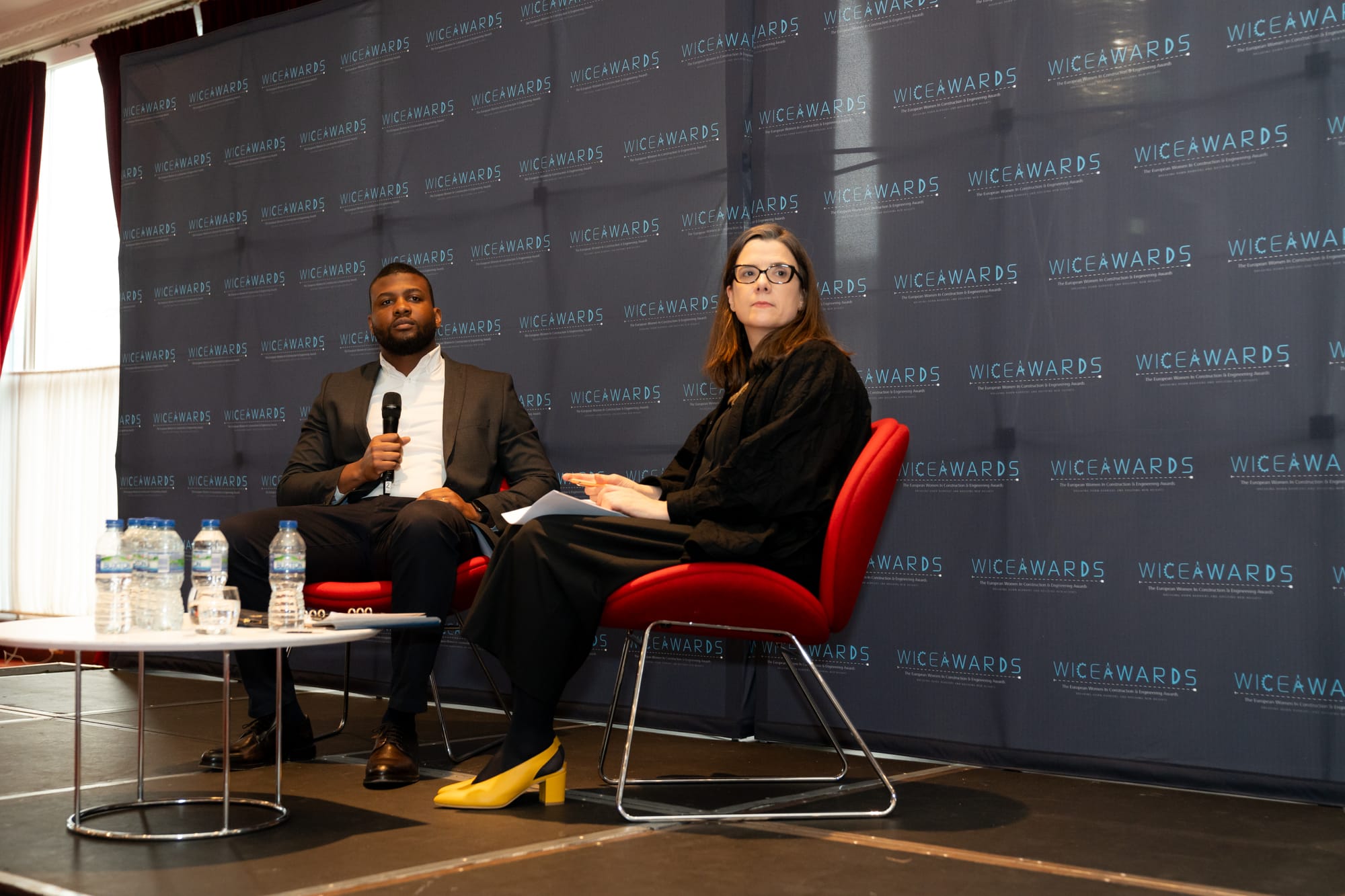AI for Profitability: Empowering Small & Mid-Sized Contractors

Written by Cristina Lanz Azcarate
Gabriel Makinwa , Founder & CEO of Coreloops was the third speaker of the afternoon. Coreloops is a construction software solution leveraging AI to empower small and mid-sized contractors. As we all know, these businesses often struggle with profitability due to time spent on administrative tasks, and his software automates cost reporting, providing them with greater control over cash flow and profitability. This innovative solution has the potential to significantly improve the financial health of many smaller construction firms.
Navigating Brexit's Impact with Technology
The construction industry faces uncertainty due to Brexit's influence on the supply chain and skilled workforce. However, technology offers promising solutions, as highlighted by Gabriel:
- Streamlining Workflows: Automation can bridge workforce gaps, freeing up resources for growth and project delivery.
- Enhancing Industry Attractiveness: Digitalization can make construction more attractive, encouraging recruitment or outsourcing to mitigate skilled labour shortages.
Women in Construction & the Future of Technology
The discussion progressed to address the critical role women play in this evolving landscape:
- Building Inclusive Technology: Gabriel emphasised the importance of developing industry-specific technology that caters to the needs of the entire workforce, including women, as essential.
- Mitigating AI Bias: He also highlighted the crucial importance of responsible AI development to avoid bias against specific groups. Women in construction should be aware of and advocate against potential blind spots in AI development and implementation.
Dispelling Common Tech Misconceptions & Embracing Change
- Overcoming Implementation Fears: Companies often hesitate due to change management concerns. However, when the long-term benefits of technology outweigh the initial challenges, action should be considered.
AI's Role in Construction's Future
Gabriel envisions AI driving automation in design roles, making the design process more accessible to the wider population and knowledge-sharing more efficient.
Industry Collaboration for Tech Development
Opportunities exist for industry professionals to contribute to the development of new technologies:
- Beta Testing Programs: Participation in beta testing programs allows for early user feedback and product refinement.
- Strategic Partnerships: Collaborating with tech companies to develop impactful tools can benefit the industry as a whole.
Scaling Up the Construction Industry
While change can be overwhelming, Gabriel suggested that it can also present an opportunity for significant progress:
- Efficiency Gains: Technology can streamline processes, reduce accident risks, and free up valuable time for building a more sustainable infrastructure that can better serve communities .
- Adapting to Evolving Demands: The rise of young, tech-savvy companies will likely drive the need for established companies to embrace technology to stay competitive.
The Next Five Years: Challenges & Solutions
The industry is heading towards a significant transformation:
- Rise of Tech-Savvy Companies: Companies leveraging AI will likely attract investment and become the industry standard. This necessitates: Supporting Small Businesses: Measures should be implemented to ensure smaller companies can access resources and compete effectively.
- Labour Shortages: Exploring options like strategically leveraging technology or outsourcing skills may mitigate personnel shortages.
- Material Price Fluctuations: Standardising processes and increasing transparency in the construction industry can help combat material price fluctuations.
